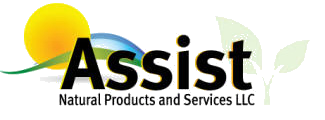How Algae Contaminates Livestock Water and What You Can do About It
Livestock water contamination by algae growth is a serious concern for ranchers and animal health. Algae blooms in stagnant agricultural water sources, such as ponds and lakes, can deplete the oxygen levels in the water and cause suffocation, as well as produce toxic substances, such as cyanotoxins, which can lead to liver and neurological damage in animals.
The growth of algae in livestock water sources is often the result of high levels of nitrogen and phosphorus in the water. This can come from a variety of sources, including manure runoff from feedlots and pastures, and the application of fertilizers to crops and pastures. When these nutrients enter the water, they provide the perfect conditions for algae to grow and flourish.
Algae Prevention
To prevent contamination and ensure clean and safe water for livestock, ranchers must implement best management practices. Removing algae and other contaminants requires proper disposal of manure and limiting the use of fertilizers. This can help reduce the levels of nitrogen and phosphorus in the water, and prevent the growth of harmful algae. In addition, ranchers should regularly monitor and test their water sources to detect any potential problems early on, and take appropriate action if necessary.
In addition to reducing the risk of contamination, ranchers should also take steps to provide fresh, clean water for their animals. This means cleaning and maintaining water systems, such as tanks and troughs, on a regular basis, to prevent the buildup of harmful algae and other contaminants. Assist Natural Products and Services offers Aquatabs that can be added directly to water troughs and livestock tanks. Our Aquatabs InLine System can also be installed to cut the problem of water contamination off at the source. Our InLine System allows your livestock water to run through a filter that uses hypochlorous acid to prevent algae growth right from the start. Providing clean water for all the animals in your herd is important, as animals that do not have access to clean water are at a higher risk for health problems and reduced productivity. Reduced productivity leads to profit loss.
Clean and safe water is essential for the health and well-being of livestock. By implementing best management practices and providing fresh, clean water, ranchers can reduce the risk of water contamination and protect the health of their animals. Regular monitoring and testing of water sources, as well as proper maintenance of water systems, can also help prevent harmful algae growth and ensure a clean and safe water supply for livestock.

